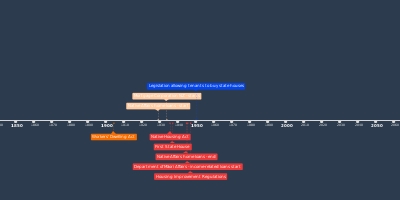feb 13, 2020 - Govt announces $300 million for homelessness
Description:
The government is ramping up its efforts to stop using motels for emergency housing, announcing an extra 1000 transitional housing places will be ready by the end of the year.General vision of homelessness in Auckland central city.
Those staying in motels for more than seven days would have to start making a 25 percent of income payment for it, however, in a move the government said was bringing the accommodation into line with other forms of accommodation support.
Speaking at the opening of Auckland City Mission's new safe haven service for homeless women, Housing Minister Megan Woods announced the government's Aotearoa New Zealand Homelessness Action Plan.
The $300 million plan promised to reduce demand for emergency motel accommodation by adding 1000 new transitional housing places on top of the 1300 places introduced since the government was formed.
Budget 2019 had allocated funding for to maintain more than 2800 such transitional homes.
Housing Minister Megan Woods said motels were only ever intended as short-term emergency accommodation of up to seven days, but the average length of stay had increased to over seven weeks.
"Motels are not a suitable environment for vulnerable individuals, families and whānau and they are also not cost effective," she said.
"Alongside our state house build, this government will increase the supply of temporary accommodation to reduce the use of motels for emergency housing."
She said 63 of the transitional homes were already built and ready to be lived in today.
The plan would also provide another $70 million for support programmes.
Government action plan new initiatives and extra funding for support services:
$175m for 1000 additional transitional housing places by the end of 2020
$20m to work with Māori to prevent homelessness, expand housing supply delivered by Māori
$13.5m to pilot a rapid re-housing approach for people receiving Emergency Housing Special Needs Grants
$8.7m for a service helping landlords put MSD clients in private rentals
$9.3m to support children in emergency housing, e.g. transport to school or early childhood education
+$25.6m to the Sustaining Tenancies programme
+$17.5m for services for young people moving from Oranga Tamariki care into accommodation
+$16.3m for services helping acute mental health and addiction inpatients moving into communities
+$19.8m to expand services for people in emergency housing longer than 7 nights
+$740,000 to programmes providing skills and confidence in managing a private rental
Documents released with the announcement said other public housing was expected to increase by 1600 homes a year, to have provided about 6400 extra homes by June 2022.
"This government inherited a homelessness crisis decades in the making when we took office, that will take time to fix. The previous government left us with a chronic shortage of houses and were selling off state houses that people desperately needed," a statement from Prime Minister Jacinda Ardern said.
Speaking about the emergency accommodation charges, Social Development Minister Carmel Sepuloni said emergency accommodation was the only form of housing where tenants were not - yet - required to make any payment contribution.
"We want to make housing costs as consistent and fair as possible for all families and people who receive government housing support - no matter what type of housing they're in," she said.
"We need to ensure that emergency accommodation is reserved for those who need it most and that there is parity between those receiving different types of housing support."
Associate Minister of Housing (Public Housing) Kris Faafoi spoke about the need for support services alongside extra supply.
"Homelessness is not inevitable and the right support at the right time can prevent someone from becoming homeless or needing emergency housing," he said.
"This action plan aims to fill the gaps in our prevention efforts, gaps which mean too many people are ending up in emergency housing or rough sleeping."
He said local actions needed to be responsive to local problems and needs.
The Sustaining Tenancies programme had undergone a full redesign from the sector, he said, and would be able to support up to 4650 households over three years from 1 July.
A Māori focus
A Māori approach will underpin the government's new plan in dealing with homelessness.
As part of the $300 million dollar announcement - $24 million will be used for specific Māori initiatives to reduce and prevent Māori homelessness.
Minister of Māori Development and Associate Minister of Housing Nanaia Mahuta said Māori were overrepresented among people experiencing homelessness and a different approach was needed.
"Kaupapa Māori approaches are grounded in a Māori worldview; one in which Māori values, tikanga Māori and te reo Māori anchor all action. They will be values-based and involve holistic wrap-around services."
The action plan, specifcally for Māori, will include partnerships with iwi, hapū and marae to prevent homelessness through whenua-based initiatives and to build the capacity of Māori providers to provide services and support new Māori Community Housing Providers.
Source: https://www.rnz.co.nz/news/political/409432/government-announces-300m-homelessness-action-plan
Added to timeline:
Date:
feb 13, 2020
Now
~ 5 years and 8 months ago
